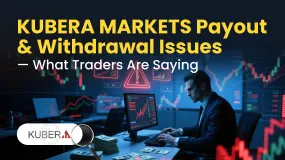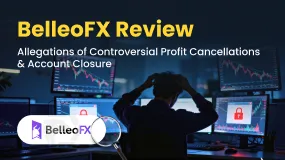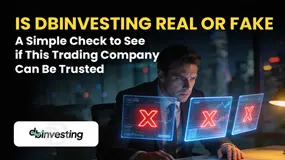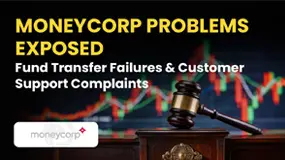Abstract:Forex trading is causing a stir on social media, with many people drawn in by the promise of making a lot of money with little work, especially as a lucrative side gig. So, what's the issue with all the hullabaloo? Is it just a get-rich-quick gimmick, or can you truly start making millions?
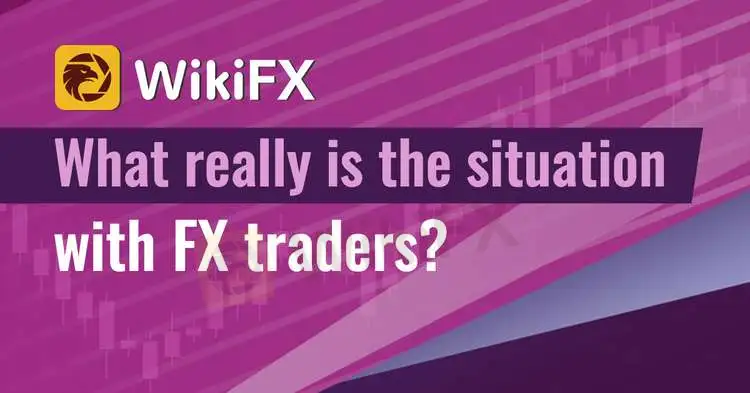
Forex trading is causing a stir on social media, with many people drawn in by the promise of making a lot of money with little work, especially as a lucrative side gig. So, what's the issue with all the hullabaloo? Is it just a get-rich-quick gimmick, or can you truly start making millions?
What is forex trading and how does it work?
The foreign exchange (forex) market, the world's largest and most liquid market, is a worldwide marketplace where foreign currencies are traded. It is not a fraud in and of itself, but it is becoming increasingly popular among con artists for a variety of reasons.
Forex trading is done in currency 'pairs' (for example, USD/ZAR), and these currencies fluctuate in value against each other on a daily basis. Trading entails selling one currency and buying the other, just like any other investment, according to Procopos.
“Say the exchange rate between the British Pound and the Rand is 1 to 20 (1:20) at a certain moment in time. You would spend ZAR20,000 if you bought GBP1000 on the foreign market at the time. If the currency rate later moved to 1:21, you could sell GBP1000 for ZAR21000, resulting in a profit of R1000.”
Doesn't it appear to be straightforward? Procopos disagrees. “Keep in mind that trading is done online, which means that instead of going via a centralized exchange, all transactions are done over computer networks between traders. Because of its decentralized structure and minimal entrance criteria, forex trading is an easy way for unscrupulous internet traders to steal money from unwary individuals, according to Procopos. ”This implies that you may start trading with a little amount of money, making it simple for these traders to demonstrate that they are actively trading.
Another factor that makes forex trading vulnerable to fraudsters is the concept of 'leverage.' What exactly is leverage? “This is simply a loan by the broker to the trader allowing the trader to trade at a margin,” one legal site says. Depending on the amount of currency being traded, a typical margin ratio will be approximately 50:1, 100:1, or 200:1. To cover a £100,000 deal, the trader just has to put up £1000 at a 100:1 leverage. Because currency changes in the forex market are often less than 1% during any activity, brokers give such large leverage. High leverage, even with little changes, attracts naive traders who believe the Forex market is a get-rich-quick scheme.
Leverage has both positive and negative aspects. It's up to you to determine how you want to connect with it, based on your risk tolerance.
What to Look for in a Forex Scam
While it is possible to make money in forex, Procopos emphasizes the need of being able to spot a fraud. He mentions a few red signs to keep an eye out for:
- You are approached initially by the trader or broker. It is prohibited for them to approach you
– you must initiate contact with them, indicating your interest in trading and agree to be contacted.
- The independent trader or brokerage is based off-shore and cannot supply you with their FSP license (or you cannot find the FSP license on their website).
- You can't seem to get a human at the brokerage
- They want enormous sums of money from you but don't appear to be able to offer any live trading data
- They make absurd claims of returns or promote unrealistically high win rates
Procopos recommends that you consider yourself successful if up to 60% of your transactions are lucrative. Be cautious with those.
How can you make forex trading profitable for you?
While there are real chances and trading may make you money, doing it yourself requires a lot of time and work. According to Procopos, “professional registered platforms and competent, experienced brokers will be able to assist you.”
“Without experience, you may expect to lose the majority of your transactions. You might lose a lot more money than you started with,” he warns.
There are a few things to bear in mind for people interested in trading, according to Procopos:
• Work with an expert: Recent legislation mandated that derivative brokers receive licenses to trade forex, and potential consumers are recommended to seek traders who possess an over-the-counter derivatives products (ODP) license.
• To guarantee that you are working with a professional, registered trader, or trading company, just ask for their name, FSP and ODP license number, or FAIS registration. Second, as a South African, you should only trade on a forex platform that is based in the nation and has received ODP authorization from the Financial Sector Conduct Authority (FSCA).





